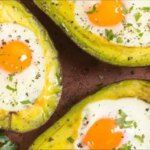The protein is often a major concern for people who are thinking of adopting a newborn child. vegetarian diet o vegan. We know that proteins are important for the function of our muscles, bones, hormones, digestive enzymes, and for the rebuilding and recovery of our cells, tissues and so on.
Although we are used to getting our protein from animal sources, they are not indispensable and we can live without them if we have decided to start eating a plant-based diet. With good planning and variety, you can cover your protein requirements without any problems on a vegan diet. And I'm going to explain a little more about it.
Protein and amino acids
Proteins are made up of 20 amino acids and humans can synthesise several of them as long as we get enough nitrogen from our diets. The other 9 amino acids are the essential amino acids, which are those that we cannot produce and therefore must be supplied by our diet.
The problem is that plants do not provide us with sufficient quantities of the 9 essential amino acids like animal proteins. For this reason, nutritionists recommended that it was necessary to combine in the same meal, foods that provide different essential amino acids, from different sources, in the same meal. plant sourcesfor example, lentils and rice.
However, combining is not completely necessary, because our body maintains a reserve of amino acids from various sources for later use. Basically, our body can make its own supplement with the amino acids in a meal, and in fact scientific evidence suggests that protein consumed in a single meal can be combined with protein consumed later in the day.
Lysine
Legumes are important in vegetarian or vegan menus because they are one of the best vegetable sources of lysine, one of the most important amino acids, especially for muscle protein synthesis.
However, quinoa and amaranth are also good options for providing this amino acid. The peanut butter or hummus can also provide an excellent source of lysine.
Protein combinations in a vegan diet:
- Pulses + cerealsSoya milk with spelt or puffed rye, chickpeas with rice, oatmeal with soya yoghurt.
- Pulses + nutstofu with peanut sauce, bean salad with walnuts, lentils with pine nuts.
- Cereals + nutsRye bread with walnuts, oat porridge with flaked almonds, rice with cashew nuts.
Proteins from vegetable sources
In general, these are all the proteins from plant sources that you can get throughout the week: Soya (soya derivatives, vegetable drink, yoghurt), lentils, chickpeas, beans, quinoa, amaranth, peanuts, spelt, oats, seitan, almonds, cashews, peas, wheat germ, soya yeast, couscous, chia seeds, hemp seeds.
General recommendations
- Eat a variety of vegetables, nuts, seeds, legumes and fruits.
- Supplement with vitamin B12It is very difficult to obtain vitamin B12 from fortified foods.
- The food of soya (from yoghurt, vegetable drink, tofu) are very high in protein and with a fairly complete aminogram.
- Include at least 3 servings of pulses a day.
I hope this post helps you!






